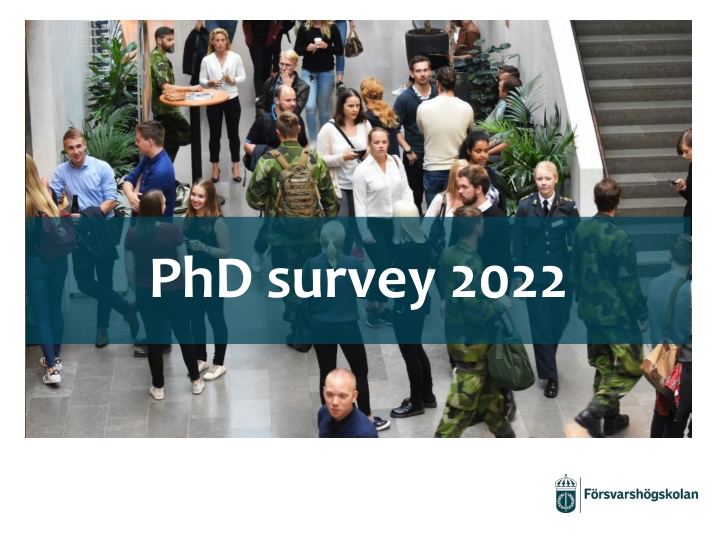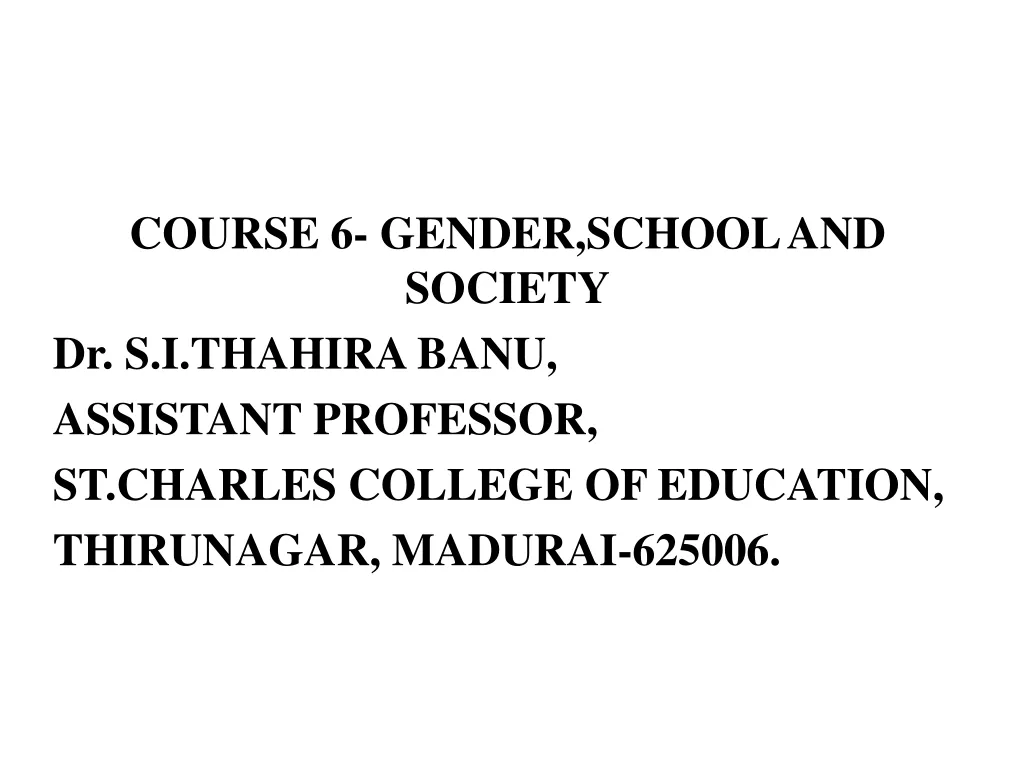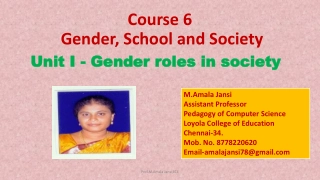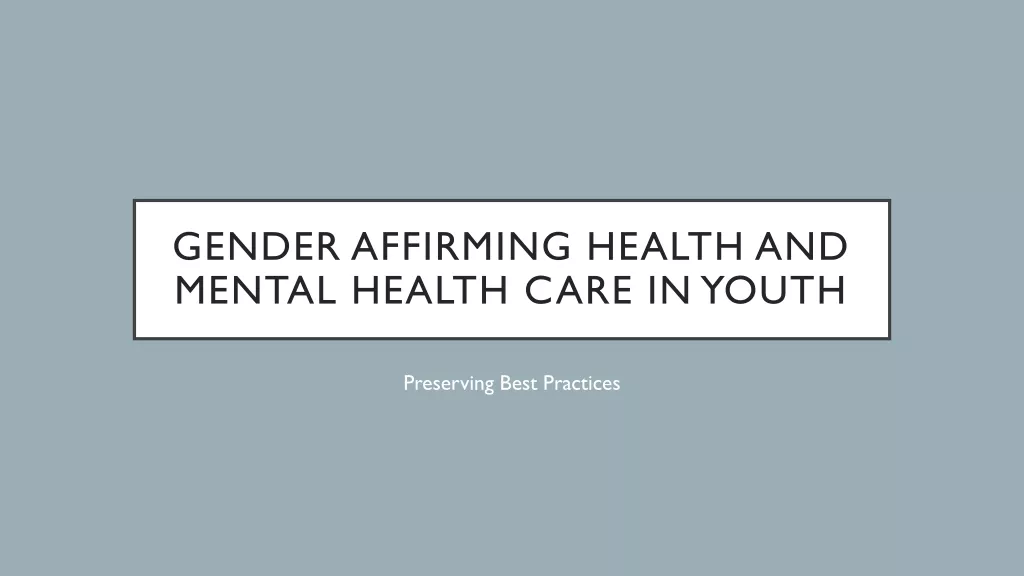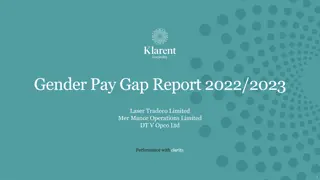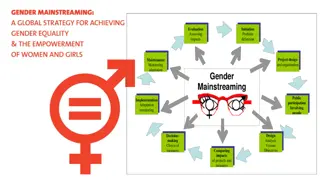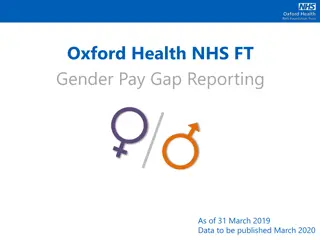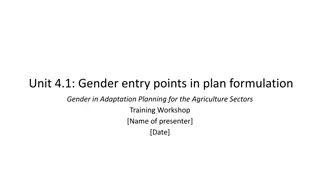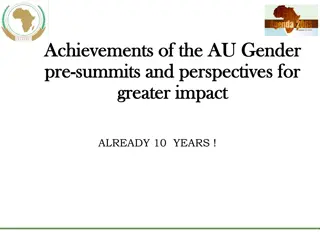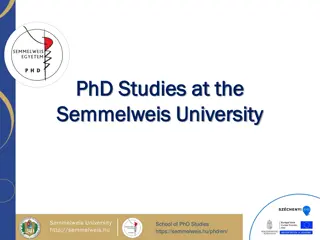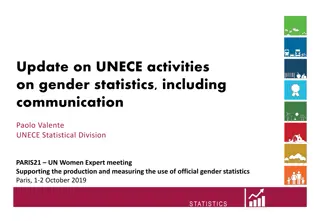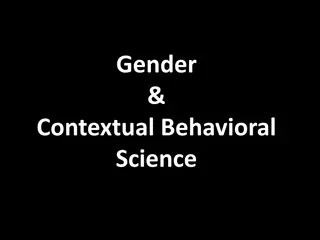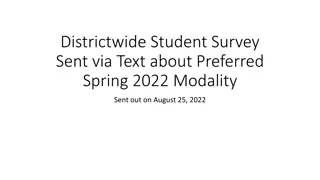Insights from PhD Survey 2022: Selection, Background, and Gender Differences
Unveil findings from the PhD survey 2022 regarding program selection, educational backgrounds, and gender disparities. Explore the responses of men and women, showcasing varying perspectives on supervision, support, stress, and more, providing a comprehensive overview of the survey results.
Uploaded on Feb 24, 2025 | 3 Views
Download Presentation

Please find below an Image/Link to download the presentation.
The content on the website is provided AS IS for your information and personal use only. It may not be sold, licensed, or shared on other websites without obtaining consent from the author.If you encounter any issues during the download, it is possible that the publisher has removed the file from their server.
You are allowed to download the files provided on this website for personal or commercial use, subject to the condition that they are used lawfully. All files are the property of their respective owners.
The content on the website is provided AS IS for your information and personal use only. It may not be sold, licensed, or shared on other websites without obtaining consent from the author.
E N D
Presentation Transcript
Selection dr. prog = PhD Programme in War Studies, Leadership and Command & Control and Systems Science for Defence and Security dr. prog S = PhD programme in Political Science Annat = project PhD students, industrial PhD students , PhD students with no time left in the programme but still at FHS etc.
Selection Comparison with survey 2014 41 responses out of 54 respondents = 76% response rate Distribution of 100% respondents 2022 Other 27 % Dr. prog 54 % Dr. prog S 20%
Background Qualifying education 27 percent studied completely at FHS (5%) 54 percent studied completely at another university (61%) In parentheses = results from 2014
Differences in responses between women and men 6 women and 20 men responded Men state to a greater extent: higher number of hours of supervision during autumn 2021 that they have acquired knowledge of methods and theories and deepened their insights into research ethics that supervisors discussed methodological issues and given constructive criticism of the research work.
Differences Women indicate to a greater extent that they: received support and stimulation from teachers in the previous education to go on to the doctoral education gives higher grades for the introduction for new doctoral students had a say in the subject and department gained an increased understanding of social and cultural differences between the genders through doctoral studies
Differences Women indicate to a greater extent that they: experienced pressure / stress that has given negative experiences Experience the requirements in postgraduate education as high worry about becoming unemployed after graduate education
Less good all respondents 16 percent (15%) participated in postgraduate education before they were formally accepted. 12 percent (4%) agree to a high or a very high degree that their research results have been used without their name being given as the author or originator/author. 54 percent (50%) have experienced pressure / stress that has given negative experiences to a high or a very high degree 12 percent (15%) have been on sick leave for more than 14 days in 2021 In parentheses = results from 2014
Less good A small proportion of doctoral students have at some point during their doctoral education experienced negative treatment by other doctoral students, teachers, other teaching staff or administrative staff due to gender, ethnicity, religion or other belief or disability (2014: small proportion even then). Only 16 percent (13%) think that they have gained a good insight into their rights and obligations as a doctoral student. In parentheses = results from 2014
Good Nine out of ten (75%) doctoral students are satisfied with how their individual study plan has been followed up in 2021. The majority of doctoral students feel that they have gained new knowledge about scientific methods and theory. Overall, the doctoral students are satisfied with their supervisors. The absolute majority believe that their supervisors have allowed their own interests to guide the choice of dissertation topic, that they have shown interest in their doctoral studies and that they have given constructive criticism of their research studies. Average positive response 78 percent (59%). In parentheses = results from 2014
Good None of the doctoral students have experienced sexual harassment during their doctoral studies (2%). Nine out of ten doctoral students (82%) would choose to start their doctoral studies if the election were to take place today. 73 percent (83%) of doctoral students probably or definitely want to work at FHS after graduation. In parentheses = results from 2014
Good Two thirds (65%) believe that it is important that their doctoral education and special dissertation work take place at FHS. Two thirds (68%) do not worry at all about becoming unemployed after graduate education. In parentheses = results from 2014
Finally 35 percent (18%) of doctoral students rates very good on their doctoral education so far, 54 percent (70%) rates good and the remaining 12 percent (10%) rates poor. No one rates very poor (3%). In parentheses = results from 2014
Rapporten finns p MittFHS https://www.fhs.se/mittfhs/startsida/utbildning-och- forskning/doktorandhandbok/doktorandenkat-2022.html
A few reflections Subjects continue to develop the research environment and work with the inclusion of doctoral students. The Board of Supervisors is an important arena. Further develop area-wide activities. PhD student day from / about HF.
Reflections Doctoral student survey more frequently. Further develop the doctoral student handbook at MittFHS. Pro-vice-chancellor instructs the directors of PhD studies to decide on how to further continue the work with the results of the survey.
